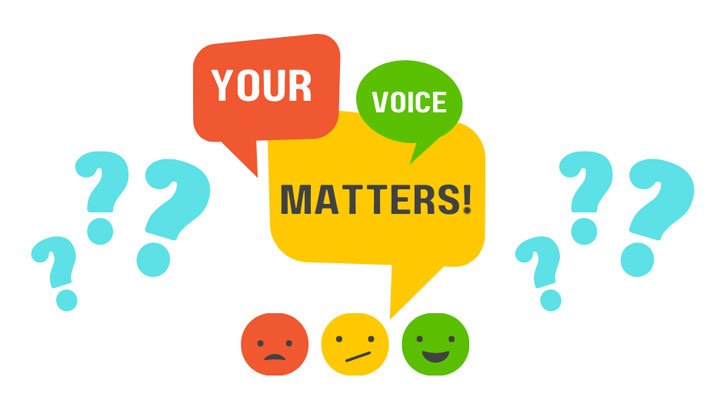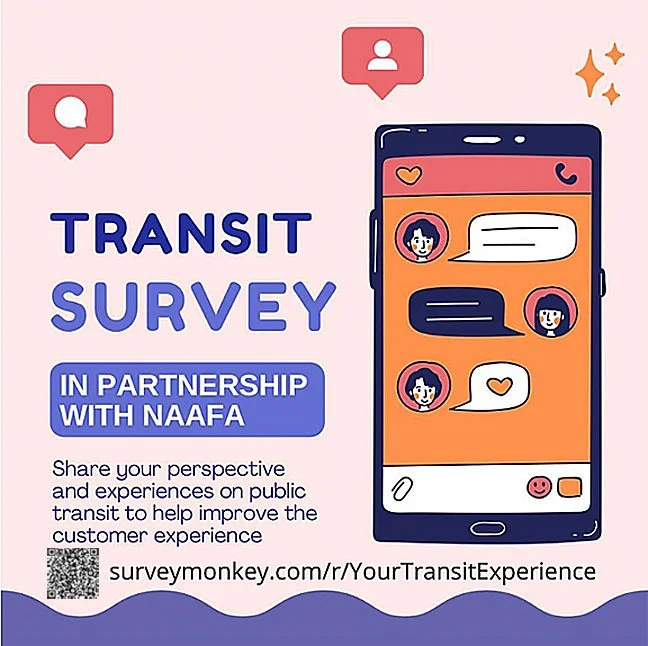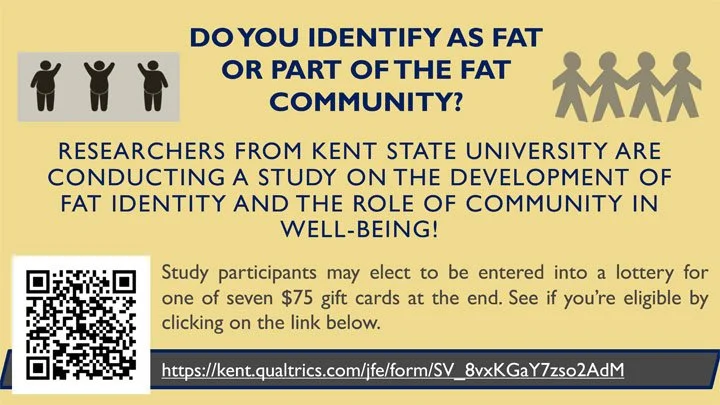RESEARCH SURVEY OPPORTUNITIES
NAAFA is introducing RESEARCH SURVEY OPPORTUNITIES, a new monthly feature in the NAAFA Newsletter and on the NAAFA Community Voices Blog,.
The purpose of this feature is to share the opportunity to participate in surveys or studies that directly affect fat community. These research participation opportunities have been presented to NAAFA for possible sharing by the individuals or organizations that are leading the research. They were not created by nor are they sponsored by NAAFA.
We do our best to vet each opportunity and to ensure that the researchers are fat positive or weight neutral in their approach, as well as to ensure that each research opportunity is being conducted ethically and that you are being advised of any potential risks. However, these research opportunities are not sponsored by NAAFA and your participation is at your own risk. All questions should be directed to the contact person listed in the announcement.
We encourage you to participate as you see fit and help to make the needs of fat community better understood and heard.
Survey Title: Experience Using Public Transportation
Who should participate? All fat/larger-bodied people that utilize public transportation (i.e., buses, shuttles, trains, water ferries, commuter buses, aerial tramways/cable cars)
Submission period: 7/10/22 - Extended to 8/15/22
Purpose of the survey: A group of leaders in the American Public Transportation Association (APTA) are conducting research for transit industry CEOs and Administrators to improve customer experience for fat and larger bodied people. The team wants to gain perspective from your experiences and interactions on-board public transit to make a compelling case for transit CEOs to make intentional changes to system/facility design and employee training. We want the experience to be an inclusive, safe, and an accepting environment where fat and larger bodied people are valued.
Link to survey: surveymonkey.com/r/YourTransitExperience
Who to contact with questions: Nicholas Sofoul, AICP (he/him/his), Transit Planning Administrator at nsofoul@gmail.com.
Survey Title: Kent State Fat Identity and Community Well-Being Survey
Who should participate? All larger-bodied people
Submission period: Now through 8/31/22
Purpose of the survey: Social identities are important in preventing negative psychological and physical effects of stigma and discrimination, but little is known about the development of social identity among people with high weight. This study will explore how personal experiences impact identity formation as people with high weight (i.e., fat identity). Participants will complete questionnaires about their experiences with weight, beliefs about weight, and their attitudes towards weight. It is expected that the younger someone was when they first became fat and the longer they have been fat will be associated with beliefs that weight is uncontrollable and increased association with fat peers. Thus, these experiences are expected to be associated with increased fat identity and better outcomes.
Link to survey: https://kent.qualtrics.com/jfe/form/SV_8vxKGaY7zso2AdM
Who to contact with questions: Karen Wetzel, Kent State University Graduate Student, Psychological Sciences at kwetzel9@kent.edu
Survey Title: Care Rationing Survey
Who should participate? If you, or someone you know, was denied care during COVID due to care rationing, or due to perceptions about limited medical resources, please take this survey to share your story.
If you are a medical professional who witnessed or participated in care rationing, please take this survey.
If you, or someone you know, were almost denied care and you want to share what happened, please take this survey. We will use the statistics and stories to help advocate for access to treatment for people at risk of discrimination.
Submission period: NOW (Ongoing)
Purpose of the survey: During emergencies like the COVID pandemic, when hospitals are overwhelmed with the number of people needing help, they turn to “care rationing.” Care rationing means medical providers limit the types of care they provide to certain people.
Sometimes care rationing means that people will be denied life-saving care and instead will only receive care to help them be more comfortable. When care rationing happens on the basis of certain characteristics, it can be unlawful or wrong. Because COVID precautions often mean patients are without their usual support systems, care rationing can happen behind closed doors without input from family members, friends, support workers, or community. It is important to share stories of discrimination so that all people receive fair treatment.
Link to survey: flareproject.org/rationingsurvey/ (Available in English and Spanish)
Who to contact with questions: Contact F.L.A.R.E. through their contact form at flareproject.org/home/contact/




